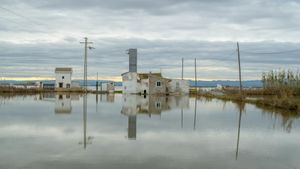The COP29 Climate Conference has officially kicked off this week in Baku, Azerbaijan, attracting representatives from nearly 200 countries. This important annual gathering, organized by the United Nations Framework Convention on Climate Change (UNFCCC), delves deep not just beneath the pressing issues of climate finance, but also the associated responsibilities and expectations of global cooperation.
Reflecting on its backdrop, COP29 holds high stakes, especially against the tumultuous political climate following the re-election of Donald Trump as the President of the United States. Trump, who has previously withdrawn the U.S. from the Paris Agreement, is likely to shake up the negotiations potentially affecting international climate commitments. His stance casts uncertainty over the U.S.'s prior commitments to cut carbon emissions, which could impact the objectives of COP29.
Running from November 11 to 22, the conference focuses heavily on finance, which is why it's dubbed the "finance COP." World leaders are under pressure to agree on the New Collective Quantified Goal (NCQG) for climate finance, which is expected to ramp up funding to developing nations aiming at substantial climate-related efforts. Following the agreed-upon figure of $100 billion per year established back in 2009, there are now calls for the NCQG to exceed $1 trillion annually to effectively tackle the climate crisis.
UN climate chief Simon Stiell opened the conference, stressing the grave necessity for global unity: "If at least two-thirds of the world’s nations cannot afford to cut emissions quickly, then every nation pays a brutal price." Stiell warned against viewing climate finance as mere charity, urging the need for ambitious, transformative support for poorer nations.
Among the notable attendees, it's also significant to mention the Taliban's delegation, marking their first participation since taking power over Afghanistan. This sets the stage for various negotiations on regional responsibilities and contributions, especially since Afghanistan is considered one of the nations highly vulnerable to climate impacts. The conference opened with round-the-clock discussions, alongside engagements from climate activists and non-governmental organizations pushing for stronger climate commitments.
One poignant aspect as representatives converge is the growing concern surrounding funding for climate adaptation and mitigation efforts, especially for lower-income nations. According to reports, developing countries' demands for financial support have surged following extreme weather events this past year. The UN has emphasized the necessity of agreeing on how these financial resources can be mobilized and distributed to those most affected by climate change.
For the participating nations, the emphasis on updating Nationally Determined Contributions (NDCs)—the specific climate goals set out by countries under the Paris Agreement—remains pertinent. Delegates are expected to finalize goals during the conference, as the deadline for the next round of NDC updates is fast approaching.
An unsettled atmosphere clouds the discussions at COP29 due to Trump’s election consequences. The uncertainties around U.S. commitment could influence other nations' climate objectives and the ambitiousness of their respective climate actions. Trump has historically been skeptical about climate change initiatives, which adds to worries about the rollback of U.S. climate measures.
At the same time, countries like the UK and Australia are under scrutiny to uphold their financial commitments, as the initial $100 billion pledge by developed nations to help developing counterparts achieved only two years late. Now, these poorer nations are calling for new targets of at least $1 trillion annually to battle rising temperatures and address the crippling impacts of climate disasters.
A special focus at COP29 is not just on setting financial goals but also on the manner of financing—whether it will come through grants, loans, or investments, and how to structure these to guarantee efficiency and impact. Damilola Ogunbiyi, the UN Special Representative on Sustainable Energy, highlighted the imbalance of climate finance investments, noting, "We have record-breaking year investments, but only 15% goes to the global south."
The tension surrounding financial responsibilities is compounded by the varying degrees of emissions produced by countries, prompting discussions about whether newly industrialized nations like China should also shoulder part of the financial burden since they provoke significant annual emissions. There’s hope among developing nations pushing for greener solutions from industrialized counterparts, including increased accountability.
While the negotiations set to happen at COP29 are undeniably complex, they also represent significant opportunities for reevaluation and adaptation. One key initiative on the agenda includes advancing the discussions around carbon markets to facilitate trading carbon credits between nations, contributing to emissions reductions. Carbon credits allow companies or countries unable to reduce emissions sufficiently to offset their footprint by funding projects aimed at reducing emissions elsewhere.
Article 6 of the Paris Agreement frames the groundwork for these discussions, pointing toward potential trading mechanisms to address climate needs. The proposals include bilateral agreements and the establishment of centralized systems to regulate how carbon credits are generated, traded, and offset.
Countries have been actively resisting the absence of firm commitments from larger polluters, including the U.S. and China, which could undermine operationalizing the carbon trading systems effectively. There are fears from well-informed sectors, especially the more vulnerable states, about how fossil fuels will still remain central to global discussions, particularly with the host nation Azerbaijan heavily involved with fossil fuels economically. This entanglement could lead to complications during negotiations on the fossil fuel agenda, limiting candid discussions.
Despite these challenges, COP29 has also garnered attention to specific issues like food security, water management, and sustainable agriculture—areas closely tied to climate change impacts. Officials are working diligently to tackle how these aspects intertwine with overall climate strategy, especially as certain targets weigh heavy on developed countries' shoulders to deliver adequately.
While delays at past climate conferences loom as cautionary tales to the present gathering, negotiations at COP29 will aim to avert mishaps, steering toward fruitful outcomes rather than drawn-out discussions with no resolutions. COP29 is set to yield back to commitments, reassess obligations among nations, and find footing on the pressing climate finance narrative which continues to demand attention against the backdrop of looming existential environmental crises facing our planet today.



